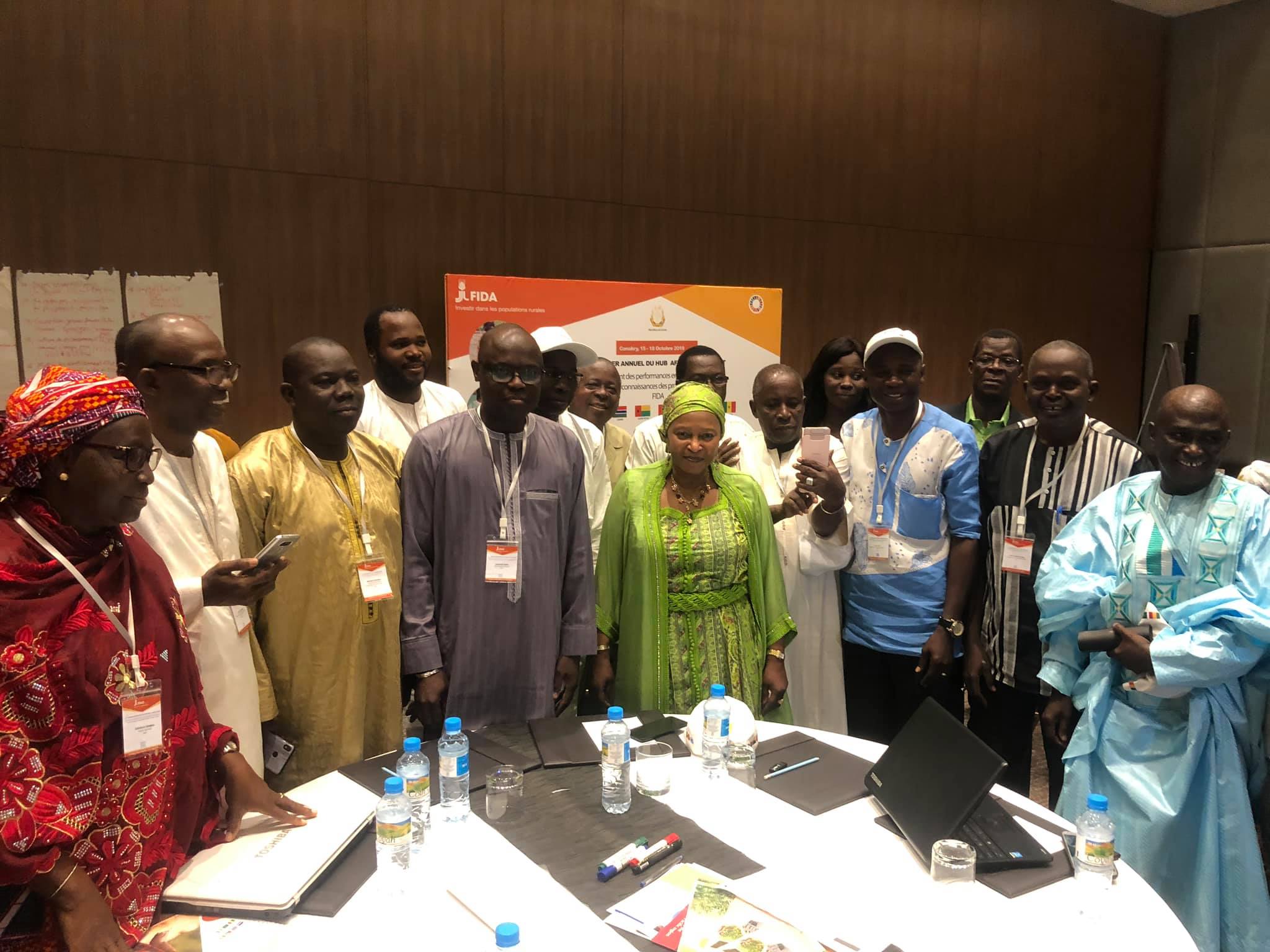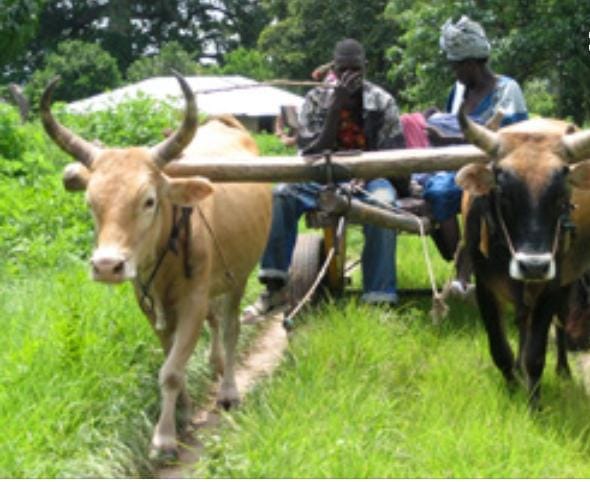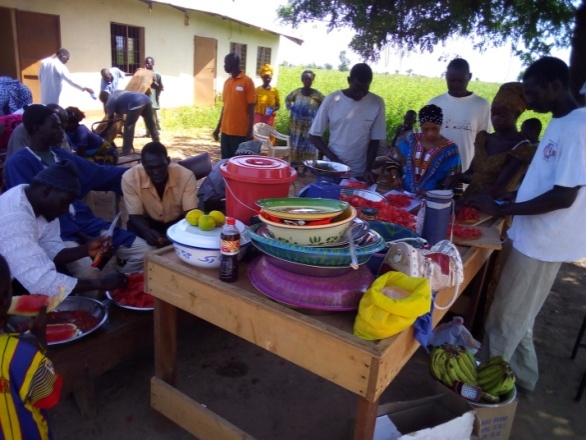By: Amadou Baldeh
Poverty alleviation is not only the goal of 21st-century world, but it has been a continuing challenge throughout history. Islam recognizes that everybody should have secured basic needs and enjoins the rich members of the society to help those in need [1] . The practice of microfinance intermediation has been largely explained by the inability of the banking industry to respond effectively to the financing needs of vulnerable groups[2]. In this sense, microfinance institutions are considered as a financial alternative[3], if not an additional complement of banking institutions in The Gambia financial system.
Microfinance provides access to finance to the poor, who do not have access to banks and other financial institutions. The objectives of microfinance institutions (MFIs) are to consider the needs of vulnerable micro entrepreneurs through access to credit while diversifying their offer[4]. The first-ever microfinance program was instituted by Laurette Nobel winner Muhammed Yunus from Bangladesh. His inventiveness of financial inclusion was applauded internationally. Additionally, countries like Malaysia, Indonesia, the Philippines, and Latin America replicated his financial engineering model and recorded great success. Nevertheless, the failure of conventional MFIs and banks to meet the needs of many Muslim clients necessitates the emergence of Islamic Microfinance. Amongst the reason for the failure of conventional financial institutions to cater for the society is religious and the substantial interest rates. Islamic microfinance can be defined as an investment of capital (in cash or in-kind), based on Islamic modes of finance, to the low-income clients, low-income entrepreneurs in order to help them start or maintain their businesses[5].
Islamic microfinance has registered great success in Muslim nations. In Pakistan, Akhuwat Islamic Microfinance, under the leadership of Dr. Muhammad Amjad Saqib, provided interest-free loans to the disadvantaged to enable them to find sustainable ways out of poverty. With over 800 branches in over 400 cities across Pakistan, Akhuwat is the largest interest-free microfinance program in the world. In other Muslim countries such Yemen, Iran, Syria, Egypt, and Sudan have also registered great success in financial inclusion and poverty reduction using Islamic microfinance.
Why Islamic Micro Finance in the Gambia
The Advent of covid has not only shown us the inequality gap in the Gambia but also the number of people living in abject poverty particularly in the rural areas. All these are a consequence of the poor being ostracized by the mainstream financial system and favoring only the elite of the society. This coupled with the percentage of the Muslim population necessitates a good functioning Islamic microfinance.
A good functioning Islamic microfinance in the Gambia will make a conceivable breakthrough, through credit-focused initiatives to embrace a wide range of financial services in order to achieve a more inclusive financial intermediation system service not limited only to those excluded from the conventional banking system with a view to giving them a chance to participate in the creation of wealth. In line with this principle, IMFIs is committed to providing low-income segments of the population and micro entrepreneurs with opportunities to engage in productive economic activities and expand their business through regular access to microcredit. This will not only help individuals to escape the cycle of poverty but will spur economic growth, increase production, and job creation in the Gambia. One would argue that the credit rating of these marginalized segments is bad and will default in their payment, but that is the beauty and the competitive advantage of Islamic finance. Any segment to its need and product can be devised based on the need of each client’s without putting them into debt trap just like the conventional microfinance. Instruments such as murabahah, musharakah, mudaraba, ijara, and salam would basically cover every poor in the Gambia. Additionally, the elements that would come with the IMF models is financial training, all the clients will be given a lesson on financial literacy, they will also be guided throughout their business activities to make sure they are making the right decision.
The Gambia is primarily dependent on agriculture and based on studies it is the highest contributor to the GDP. Knowing fully well that all the rural dwellers are agricultural-minded, the best contract to offer is Salam contract, where the IMFIs will purchase the products of these farmers in advance. Those monies will be used by the farmers to help their families and use some of it for farming. After harvesting, the goods will then be delivered to the IMFIs and the IMFIs will subsequently sell it in the market at a price higher than the purchase price. SMEs could benefit from Musharakah contract (which is partnership) where both SMEs and IMFIs provide capital for the business. Startups or people with a viable business idea can benefit from the Mudaraba Contract, where the IMFIs contributes the capital and the individual with the business idea runs the business. IMFIs is models that encompasses the whole society.
Another important reason why there is a need for Islamic Microfinance institutions is liquidity management purpose in the money market. According to research, Islamic banks are not allowed by shariah to interbank with conventional banks and these might be challenging to the only Islamic bank in the Gambia (AGIB) such as the inability to be competitive because they cannot offer competitive rate compared to their counterparts, their products being expensive and might even run out of business except if backed by the central bank, lastly, to operate exactly like conventional banks which many think is the case. The latter is however substantiated by research conducted by Muhammed Sonko on “customers’ perception of Islamic banking in the Gambia”. Having a good functioning IMF will enable them (AGIB), the takaful operators and potential IMFIs to compete, and also provide for the society especially those that are being marginalized by both the state and the capitalist banking system. Even though IMF has the potential to alleviate poverty in the Gambia, there is a huge need for incorporating technology and innovativeness in the industry. Fintech will enable rural dwellers who might have trouble travelling to the urban areas to have access to finance, but with just a click on their phones, they will be able to have access to money. Kenya Microfinance has adopted such and it has delivered great success. There are currently two full fledge Islamic microfinance Yonna Islamic Micro Finance, and APS Islamic Micro Finance. The Gambia Teachers’ Union Co-operative Credit Union (GTUCCU) has a window for Islamic finance, and Gamtel-Gamcel Staff Cooperative Credit Union (GGSCC) is also in the process of establishing a window for Islamic finance. In respect to takaful, they are two fully-fledged Takaful firms, Gambia Takaful, and West Africa Takaful. This is a good start.
Recommendations:
- The authors strongly recommend the Central of Bank of the Gambia, which serves as a regulatory institution, expedite the legislation of the Islamic finance guidelines, and ensures the full implementation of the text therein.
- Staff of these Islamic finance institutions should be subject to training in Islamic finance.
- Establishing of an independent Shariah Advisory committee who has good knowledge in the jurisprudence of Islamic trade (figh-ul-muamalat)
- The Supreme Islamic council should help in spreading the message against interest and encourage the people to support and patronize these emerging Islamic finance institutions. Unfortunately, hardly Religious leaders offer Friday sermon preaching against interest and the evil therein both economically and spiritually; therefore, religious are highly encourage especially during Fridays to offer sermon preaching and reminding Muslims on the evil of receiving and paying interest.
Author:
Amadou Baldeh (DPU University India).




